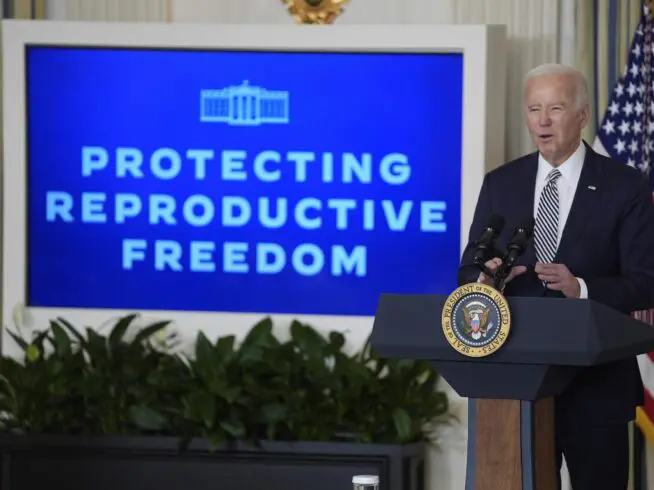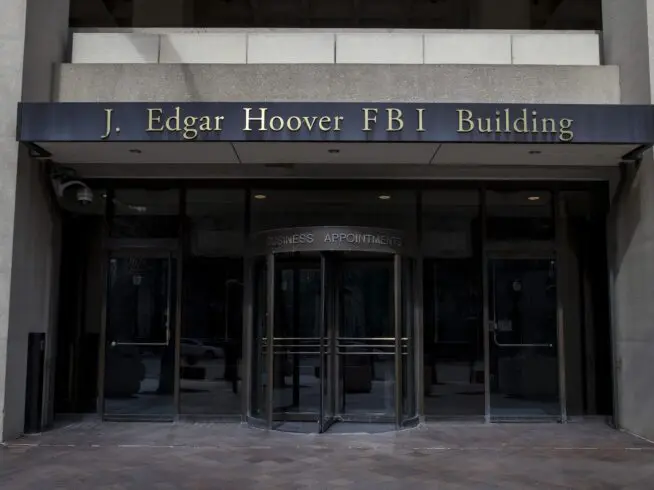How an 1873 law could give Republicans a way to ban abortion nationally
The Comstock Act may not have been enforced in decades, but it’s still law and carries the possibility of fines or imprisonment for violations.

Despite some gains in abortion rights in the states recently, particularly the passage of Michigan’s Reproductive Health Act in 2023, a federal law dating back to the late 19th century remains a threat to abortion access across the nation — even in states where the procedure is legal.
Those who are deeply committed to the anti-abortion movement have made it clear they would not hesitate to use the Comstock Act of 1873 to ban medical abortion across the nation. The act criminalizes the mailing of “Every obscene, lewd, lascivious, indecent, filthy or vile article, matter, thing, device, or substance; and— Every article or thing designed, adapted, or intended for producing abortion, or for any indecent or immoral use.”. The punishment for violation of the law is a fine, imprisonment for up to five years, or both.
Dr. Sarah Wallett, the chief medical operating officer of Planned Parenthood of Michigan, told the Michigan Independent she thinks people should be concerned by attempts by anti-abortion activists to end access to abortion across the United States.
“We’ve done incredible work in Michigan to make sure that people have access, and Michiganders have made it clear that that’s what they want. Something that changes at the federal level could mean that we don’t have access anymore in Michigan,” Wallett said.
The law remains on the books, but has not been applied to abortifacients since the U.S. Supreme Court ruling in Roe v. Wade established a constitutional right to abortion. The Comstock Act was recently spotlighted when the Supreme Court heard oral arguments in U.S. Food and Drug Administration et al. v. Alliance for Hippocratic Medicine et al., a suit challenging the FDA’s studies and approval of the abortion drug mifepristone. Erin Hawley, the attorney representing the Alliance for Hippocratic Medicine, the anti-abortion medical group challenging the FDA, argued that mailing the drug violates the Comstock Act.
Justice Samual Alito, who wrote the opinion in Dobbs v. Jackson Women’s Health Organization that overturned Roe, said about the law, “This is a prominent provision. It’s not some obscure subsection of a complicated, obscure law.”
When questioned about the law by Justice Clarence Thomas, Hawley said, “We don’t think that there’s any case of this court that empowers FDA to ignore other federal law. … The Comstock Act says that drugs should not be mailed … either through the mail or through common carriers.”
Nancy Chi Cantalupo, an associate professor of law at Wayne State University, told the Michigan Independent she worries that, if reelected, former President Donald Trump could appoint an attorney general who would use the Comstock Act to criminalize abortion.
“I would really not put it past a second Trump administration to do over-the-top things that they’re able to do, that the law allows them to do, and to do it without really blinking an eye,” Cantalupo said.
Cantalupo explained that there is a lot of discretion involved in the enforcement of criminal laws, including Comstock.
“That means that the makeup of the Department of Justice is going to be really, really important. It’s going to be more important than the actual content of the law, because they’re going to use their discretion to enforce the law however they want,” Cantalupo said.
The law was named after Anthony Comstock, an anti-vice zealot who worked with the Young Men’s Christian Association in the 1800s at a time when women did not have the right to vote; when Ulysses S. Grant was serving as the 18th U.S. president, mail was delivered by horse and wagon if it was delivered at all, and the discovery of penicillin was half a century in the future.
Wallett said that her greatest concern is that Comstock could discourage people from seeking health care.
“Our out-of-state numbers have tripled since the Dobbs decision. … A Michigander might think, Well, that doesn’t impact me, I still have access to abortion. But when we’re seeing more patients from out of state, everyone’s abortion appointment gets delayed,” Wallett said.
Cantalupo said that the only answer is to repeal Comstock, adding that although it would be difficult with the current Republican-led House of Representatives, lawmakers should not dismiss the issue.
“Women are not going to just ignore this kind of threat,” Cantalupo said. “They’re going to vote on this kind of issue, and so it would behoove them to pay attention.”




